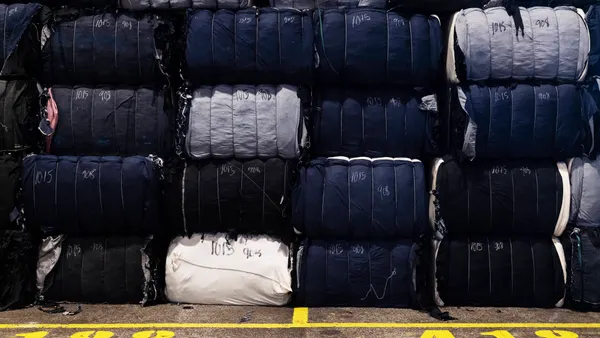Materials technology firm Rubi was awarded a $969,961 Small Business Innovation Research Phase II grant from the U.S. National Science Foundation, according to a company press release last week.
Rubi already has pilot partnerships with brands including H&M, Patagonia, Reformation, Ganni and Nuuly, per the release. It said the NSF grant will help the company develop and expand its carbon-to-cellulose platform with the goal of commercialization.
The company’s “first-of-its-kind cell-free biocatalysis technology” produces carbon dioxide-derived materials and chemicals, per the release. That means it uses a proprietary process to allow enzymes to chemically transform molecules. The company said its methods offer a reduced cost and higher yield than traditional biocatalysis, and the end result is a lower energy usage and an expanded range of products.
“Rubi's cell-free biocatalysis approach is a paradigm shift in manufacturing, providing a sustainable and efficient solution to produce CO2-derived materials without exploiting natural resources,” Leila Mashouf, the company’s co-founder and chief technology officer, said in the release. “By producing forest-free cellulose in hours rather than decades and with drastically reduced carbon emissions, water usage, and land impact, Rubi offers a faster, more sustainable alternative to traditional wood pulp.
Mashouf added that the NSF grant would help Rubi “meet the growing global demand for ultra-low-carbon, bio-based materials.”
In 2023, Rubi had an $8.7 million seed funding round, co-led by H&M Group and Patagonia, as well as a series of projects in collaboration with Walmart. The company also debuted “the world’s first yarn made from CO2 through a fully enzymatic process with Ganni,” per the release.
“This award is a testament to Rubi’s vision for a symbiotic manufacturing future and our ambition to lead the next era of sustainable industry,” Neeka Mashouf, Rubi’s co-founder and CEO, said in the release. “As we move into 2025, this grant will accelerate our efforts to scale CO2-derived, low-carbon cellulose for the textile industry, ultimately allowing us to transform environmental challenges into opportunities, bridge our proven science with existing supply chains, and set a new standard for decoupling industrial growth from environmental degradation.”











